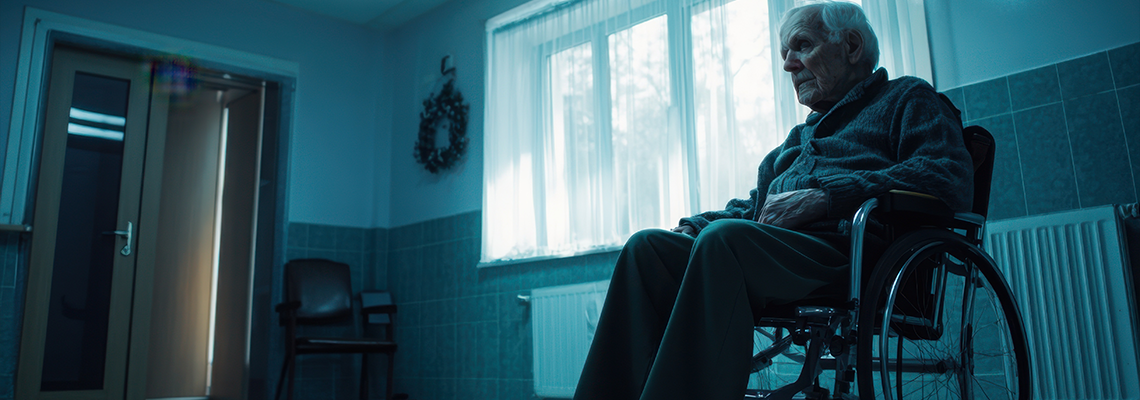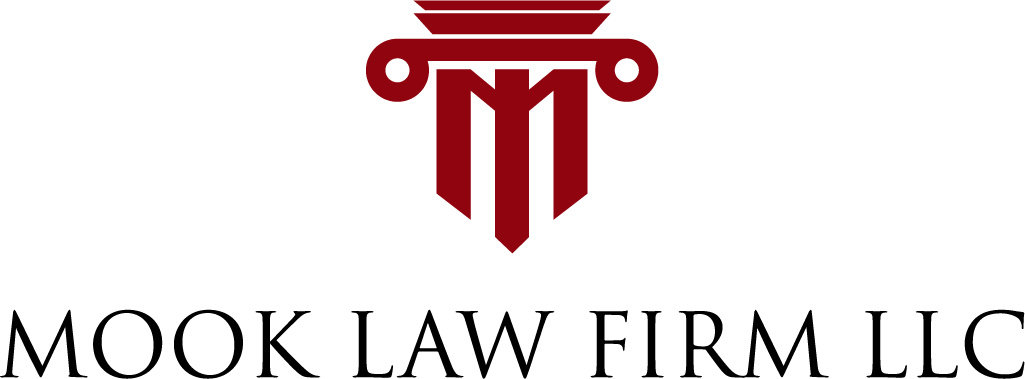
How Can Families Prove Nursing Home Abuse in Court?
Nursing home abuse can have devastating emotional and physical effects on both victims and their families. Many families turn to an injury lawyer to help gather crucial evidence like medical records and witness accounts. Having professional guidance can ease the burden while protecting their loved one’s rights.
Proving abuse in court requires careful evidence collection and clear documentation to support claims. At Mook Law Firm LLC, we help families in Kansas City, Missouri, and surrounding areas pursue justice, offering guidance to protect the rights of residents and their loved ones. Reach out to us if you need help addressing this difficult situation.
Identifying Signs of Nursing Home Abuse
The first step in addressing abuse is recognizing that something may be wrong. Nursing home abuse can take physical, emotional, or financial forms, and early detection is critical to prevent further harm. Observing patterns of neglect or unusual changes in behavior helps families document and report abuse effectively.
Common indicators include unexplained injuries, sudden behavioral changes, or poor hygiene and living conditions. Noticing repeated medication errors or financial irregularities may also signal abuse. Families who recognize these signs early can act swiftly to protect their loved ones.
Gathering Medical and Incident Records
Medical and incident records are essential to proving abuse in court. These documents provide a timeline of injuries, treatments, and events that may support claims of neglect or misconduct. Collecting records promptly helps establish credibility and accuracy for legal proceedings.
Families should request medical charts, incident reports, medication logs, and nursing notes from the facility. Having detailed records allows an injury lawyer to identify patterns of neglect and strengthen the case. These documents form the backbone of any claim for damages or accountability.
Collecting Witness Testimony
Eyewitness accounts can provide powerful evidence in abuse cases. Staff members, visitors, or other residents may have seen or heard incidents that support the family’s claims. Early collection of witness statements preserves details while memories are still fresh.
Witness testimony helps corroborate medical records and other evidence. Statements from healthcare providers or emergency responders can clarify the extent and cause of injuries. Working with an injury lawyer allows families to present these accounts effectively in court.
Documenting the Abuse
Families should create a clear, organized record of abuse to support their claims. Photos, written accounts, and communication logs can help demonstrate neglect or mistreatment over time. Consistency in documentation adds credibility and reinforces the severity of the situation.
When documenting abuse, consider the timing and context of each incident. Notes on changes in behavior or unusual injuries provide important details for the legal case. Proper documentation is often key to obtaining favorable outcomes in court.
Consulting Medical Experts
Medical experts can evaluate the resident’s condition and provide testimony regarding the abuse. They explain how injuries occurred and whether they could have been prevented by proper care. Expert opinions help establish a direct connection between the facility’s actions and the harm suffered.
Professionals can also identify patterns of neglect that might not be obvious to non-specialists. They can testify about the long-term effects of injuries and the standard of care expected in nursing homes. This professional input strengthens a family’s case significantly.
Legal Actions and Filing a Lawsuit
Once families have sufficient evidence, they can pursue legal action against the nursing home. Filing a lawsuit formalizes claims and seeks compensation for the victim’s injuries, suffering, and financial losses. We guide the family through each step, from filing to trial.
The process typically begins with a consultation to review evidence and evaluate claims. Discovery follows, allowing both sides to exchange information and documents. Settlement discussions or trials may then determine compensation or accountability for the abuse.
Calculating Damages
Calculating damages plays a crucial role in any nursing home abuse case. Families may pursue compensation for medical expenses, therapy, emotional distress, and other costs caused by the abuse. A thorough evaluation of these damages can strengthen the family’s claim.
Additional considerations may include long-term care expenses or lost income due to injury. Punitive damages may also be awarded in cases of severe misconduct. We can help families accurately quantify their losses and pursue the appropriate compensation.
Key Evidence Families Should Gather
To strengthen a case in court, families need specific types of evidence. These materials can demonstrate negligence, abuse, and the facility’s responsibility for harm. Gathering this information systematically allows an injury lawyer to build a persuasive argument.
Medical records: Charts, prescriptions, incident reports, and therapy notes.
Photographic evidence: Images of injuries or unsanitary conditions.
Written communications: Emails, letters, or complaint forms submitted to the facility.
Witness statements: Accounts from staff, visitors, or other residents.
Financial documentation: Records of unusual charges or unexplained withdrawals.
Having this evidence ready provides a clear, factual basis for litigation. It can also highlight patterns of neglect or abuse that strengthen the family’s claims. Collecting and organizing these records early can make it easier for us to build a compelling case.
Preparing for Court
Preparation is crucial before entering the courtroom. Families should organize documentation, practice witness testimony, and understand what to expect during proceedings. Thorough preparation allows them to present a clear and credible case.
Familiarity with legal procedures helps reduce anxiety and allows the family to participate effectively. Mock sessions with us can help build confidence for testimony. Clear organization and support also demonstrate the seriousness of the case to judges or juries.
Settlement Considerations to Make
Many nursing home abuse cases resolve through settlement rather than trial. Settlements provide compensation more quickly and reduce the emotional toll of prolonged litigation. Families should weigh the benefits of a settlement with guidance from their injury lawyer.
Factors affecting settlement include the strength of evidence, the potential damages, and the willingness of the facility to negotiate. Confidentiality clauses may also play a role in discussions. We can help families make informed decisions about whether to accept a settlement or proceed to trial.
Supporting Your Loved One Through Litigation
While pursuing legal action, families must continue supporting their loved one. Emotional and physical care is critical, including regular check-ins, therapy, and proper medical attention. Consistent support helps the resident recover while keeping their needs met.
Family involvement also strengthens the case by demonstrating ongoing concern and oversight. Maintaining detailed records of care and observations during this period can supplement the legal case. Emotional support contributes to both recovery and credibility in court proceedings.
Steps Families Can Take Immediately
Immediate action can protect a loved one while evidence is being gathered. Families should act quickly to document concerns, secure medical evaluations, and report abuse to authorities. Prompt action reduces the risk of further harm and preserves critical evidence.
Contact local authorities: Notify state agencies or ombudsmen responsible for nursing home oversight.
Seek medical attention: Have professionals document injuries and evaluate ongoing care needs.
Document everything: Record injuries, incidents, and communications in detail.
Notify the facility: File formal complaints with the administration to create an official record.
Consult an injury lawyer: Discuss next steps and potential legal action.
Taking immediate steps shows concern for the victim and strengthens the legal case. Early intervention is often critical to both safety and the success of litigation. It also helps preserve crucial evidence that can support claims of abuse in court.
Contact an Experienced Injury Lawyer for Help
At Mook Law Firm LLC, we assist clients in Kansas City, Missouri, and surrounding areas with guidance and representation as an injury lawyer. With the right support, families can hold responsible parties accountable and secure compensation for harm caused by neglect or abuse.
Reach out to Attorney Ben Mook to discuss your case, review legal options, and take steps to protect your loved one.

